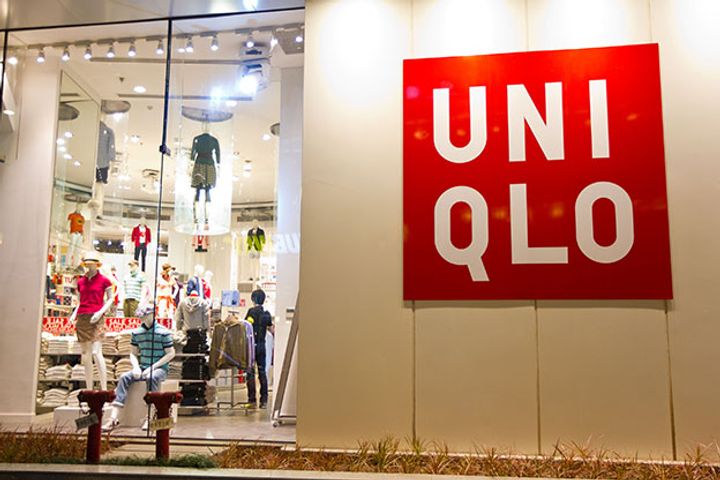 Uniqlo Founder Denies Rumors He Will Step Down, Introduces New Apparel Technologies
Uniqlo Founder Denies Rumors He Will Step Down, Introduces New Apparel Technologies(Yicai Global) Oct. 26 -- Fast Retailing Co. [TYO:9983], the parent Japanese Uniqlo Co. Toray Industries Inc. [TYO:3402], held an exhibition titled 'The Art and Science of Lifewear' at Spring Studio in New York two days ago, attracting dozens of reporters from 17 countries.
This is Fast Retailing's second global event in New York this year alone, and Fast Retailing founder Tadashi Yanai made an appearance at the exhibition.
Yanai shunned a recent Nikkei newspaper report that said he would leave his post within two years, claiming it was "fake news."
"I've read the newspaper too, it says that I will step down," he said. "I just hope to get away from day-to-day routines. That is my wish in an ideal world, but I will not retire."
Yanai, Japan's richest man, set up his first store in Hiroshima more than 30 years ago. First inspired by US fast fashion company Gap Inc.'s [NYSE:GPS] business model, Uniqlo's earnings now exceed those of Gap and it has become the world's third-largest clothing retailer.
The Chinese market, where Uniqlo operated at a loss a decade ago, has become its most successful overseas market. The firm reported record-high profits of USD1.57 billion for the last fiscal year, thanks to strong growth in the Chinese and Southeast Asian markets.
Uniqlo is perhaps the apparel firm with the closest ties to technology. Yanai has long reiterated that the company is a technology firm rather than a fashion company. The partnership between Uniqlo and Toray, which began in 2003, has lasted 15 years. Toray is a little-known chemical company. Aside from applying technologies to daily clothing, it also utilizes carbon fiber technology for the Boeing 787 program and seawater purification, among others.
Yanai repeatedly referred to Uniqlo and Toray as one company at the event. Uniqlo has sold over one billion items of Heattech clothing, one of the most important technologies jointly developed by the pair. Heattech, made through a mix of four fibers, can help to retain moisture from the skin and keep the wearer warm.
Uniqlo's products are very popular among consumers because of their focus on functionality and practicality. The two companies showcased several possible future collaborations, specifically, a coat that generates heat using solar power, a smart jacket that monitors the wearer's vital signs, such as heartbeat, and materials that display different colors in various lighting situations.
The rule that clothing sales are affected by weather and season may not always hold true. "Our products can help you in different scenarios," said Yanai. "In Singapore, where the weather is never cold, many people wear Heattech while exercising since they can sweat more that way. Many residents there also wear Heattech to adapt to offices that are too cold due to air conditioning.
Yanai also visited one of Amazon.com Inc.'s [NASDAQ:AMZN] brick-and-mortar bookstores during his visit to New York, and he felt that boundary between online and offline business is disappearing. "Digital media is our home, while brick-and-mortar stores are our second home. There are no such distinctions between online and offline anymore. This is life itself," said John Jay, president of global creative at Fast Retailing.
Uniqlo opens one new store almost every week and is continually expanding its presence online. Yanai even proposed a plan dubbed the Ariake Plan, which calls for the incorporation of such functions as product planning, design, production, logistics, and sales to help the company respond to customer demands more quickly.